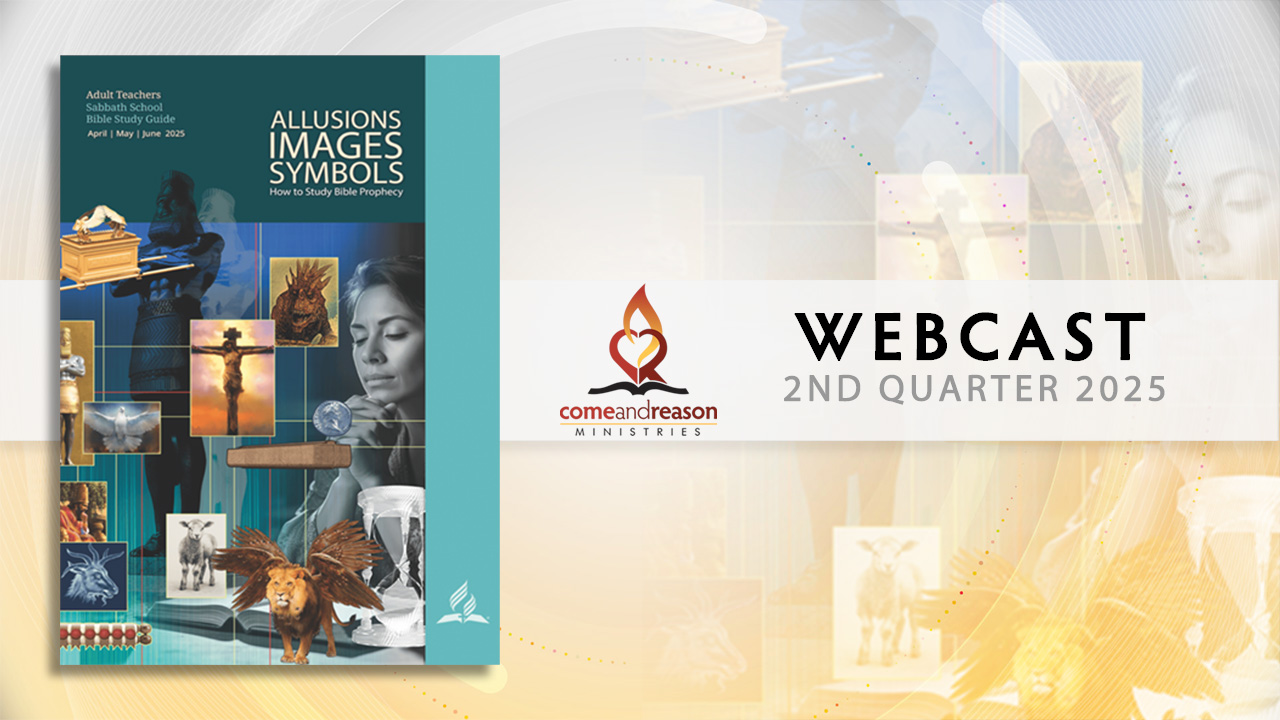Perhaps you remember singing the old hymn “Faith of our Fathers,” whose first stanza is:
Faith of our fathers, living still,
In spite of dungeon, fire, and sword;
Oh, how our hearts beat high with joy
Whene’er we hear that glorious Word!
Refrain:
Faith of our fathers, holy faith!
We will be true to thee till death (Frederick W. Faber, pub.1849).
I guess the meaning behind this song depends on who we identify as our fathers of faith—do we mean Abraham, the father of the faithful? He would be a good choice, as Paul says that all who have faith like Abraham are heirs of the promises to Abraham. Or do we mean others?
Recently, a listener emailed the following:
I was reading in the book The Great Controversy the chapter titled, Protest of the Princes. Starting on page 209 is described how Luther responded to the fear of the reformers.
“One of the principles most firmly maintained by Luther was that there should be no resort to secular power in support of the reformation, and no appeal to arms for its defense. … He declared that the doctrine of the gospel should be defended by God alone. … The least man meddled in the work, the more striking would be God’s intervention in its behalf.”
And here is where it gets powerful,
“All the politic precautions suggested were in his view attributable to unworthy fear and sinful mistrust.”
This got me to thinking about our current and end time situation in this country and on this earth. I’m wondering if you could write a blog connecting the faith of the reformers to the faith we need at the end time. I was struck again with the thought, “The battle is the Lord’s.” If we rest in this thought we have nothing to fear regarding the path of destruction our country is now engaged, the war in the Middle East, etc. A sense of peace came over me with this thought.
Thank you for your ministry and for Come and Reason. What a blessing it has been to me.
I want to thank this listener for the email; it really got me thinking! So many ideas were triggered here, such as:
“Those who cannot remember the past are condemned to repeat it” (The Life of Reason by George Santayana).
“We have nothing to fear for the future, except as we shall forget the way the Lord has led us, and His teaching in our past history” (Christian Experience and Teaching, 204, E.G. White).
I immediately recognized the great value of learning from history, of studying the Reformation, of embracing the truths that the great Reformers discovered. I love their courage, their spirit of integrity, their longing to follow Jesus, their willingness to question, their refusal to bow to external pressure to violate their consciences, their deep study of Scripture, and their advancement in truth as they understood. Yes, all of these attributes are to be valued and emulated.
But does that mean we should rest satisfied with every belief that the Reformers developed—or should we, instead, embrace and apply the motives and godly principles they practiced? If we live out the principles of the Reformation, then we are people who study for ourselves, do not rest satisfied with tradition, do not allow others to tell us the answers, have a deep desire to know God personally, have a burning love for truth, and want to grow in truth. To that end, we recognize that God is infinite and we are finite, meaning there is always more truth to discover, apply, and grow in. So it would be a betrayal of the Reformers to rest satisfied with their understanding of things; to be like the Reformers, we must advance in truth as they did.
I am so thankful for Martin Luther and the other Reformers like Wycliffe, Tyndale, and Wesley—what incredible men used by God to advance the kingdom of heaven! But these godly people were human, meaning they did not know all things; they could only assimilate so much and advance so far in God’s infinite truth. For instance, Luther did not accept all 66 books of the Bible as inspired. He considered James, Jude, Hebrews, and Revelation to not be part of the canon of Scripture and placed them in the back of the Bible. Luther never accepted the war in heaven (Revelation 12:7). He struggled with finding harmony between faith and works. He never freed his mind of the Roman view of God’s law, and he invented penal-substitution theology to counter the Catholic doctrine of purgatory. There are many things that Luther didn’t get right—despite being used mightily by God to advance the movement back to God’s truth.
We have the privilege of learning what Luther discovered, but to be a true Reformer, we should never rest satisfied with what previous generations worked out, nor with our own current understanding; instead, the true Reformer develops a heart that loves to advance in the truth. We will be people who love to grow, discover, and move forward in new epiphanies, deeper comprehension, and closer intimacy with God, which occurs as we press forward in the knowledge of God, His kingdom, His design laws, methods, and principles.
Thus, we don’t always teach things the exact way the Reformers did because truth is unfolding. But while the truth is unfolding, the principles are the same. God’s character doesn’t change; His design laws do not change. Thus, we can embrace the attitude that Luther took toward the use of state powers to advance God’s kingdom and apply that principle to our day—we can never advance God’s cause by using Satan’s methods.
And Satan’s methods are the methods of force, coercion, imposed law, legal enforcement, politics, deceit, manipulation with fear, propaganda, and the power of the state. All the governments of this planet are Satan’s. Jesus said that His kingdom is not of this world. So, if we are true Reformers, if we are advancing in the truth with the spirit of the Reformation, then we will apply the same principles of God’s kingdom that inspired the Reformers—such as the principle of truth presented in love, while leaving others free.
When we see the principles of force, coercion, manipulation, deceit, misrepresentation, and other factors used to pressure people to violate their own conscience, we can be sure that such a movement is not inspired by the Spirit of God, and that no matter the cause—even to “save lives” or “save the planet”—such methods advance Satan’s kingdom, not God’s.
If you would like to read more about the advancing truth of the Reformation, we encourage you to check out our new magazine, The Lie That Deceived Angels, Infects Christianity, and Delays the Second Coming of Christ—and if you agree with us, then join us in taking the final message of mercy to the world to hasten the coming of our Lord and Savior Jesus Christ!










 using your credit or debit card (no PayPal account needed, unless you want to set up a monthly, recurring payment).
using your credit or debit card (no PayPal account needed, unless you want to set up a monthly, recurring payment). instead?
instead?